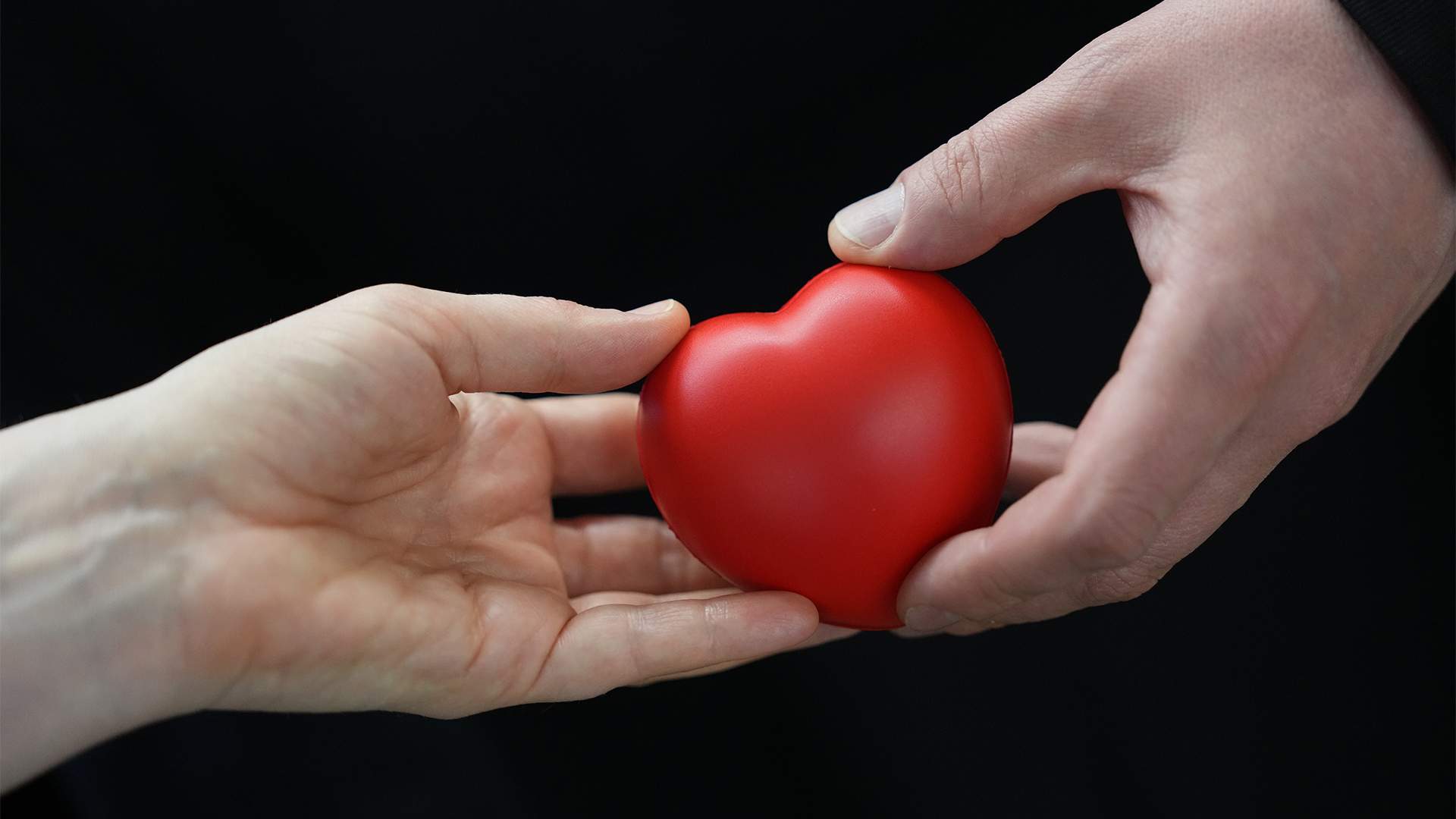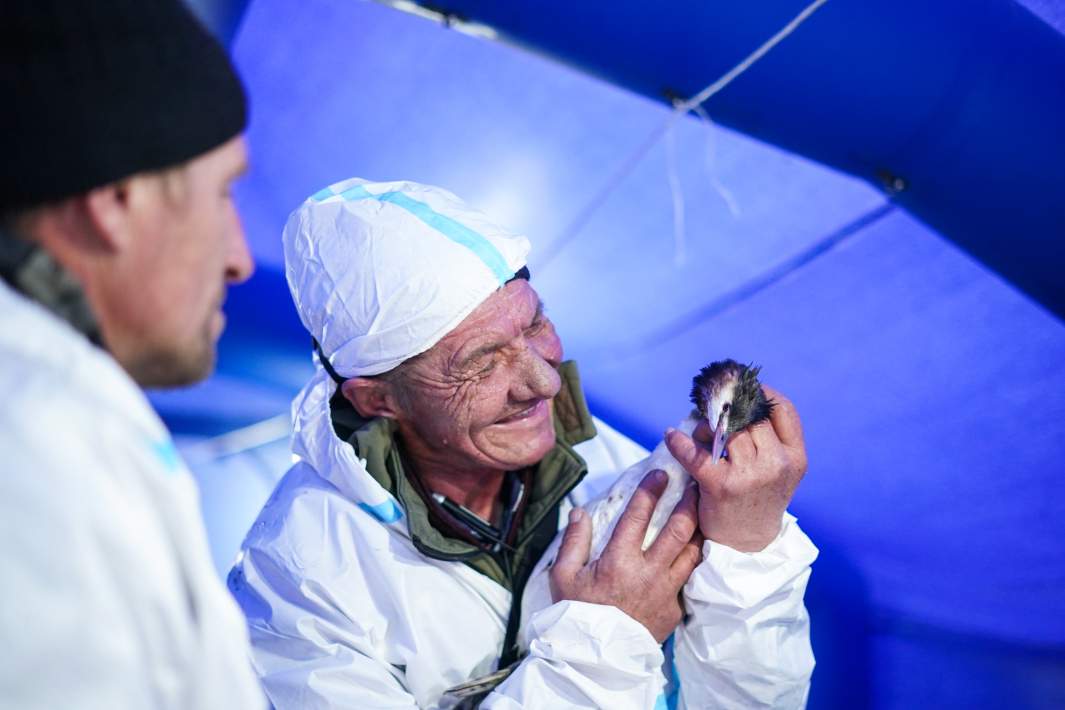The good is back: the volunteers turned out to be happier people

Volunteers were more likely to describe themselves as happy than people who had not volunteered over the past year, according to a study by the HSE Center for Civil Society and Nonprofit Sector Research. How participation in volunteer activities, emotional well—being and citizenship are related, as well as whether the state uses this resource to the fullest extent, is described in the Izvestia article.
Work for my benefit
Analysts at the HSE Center for Research on Civil Society and the Non-Profit Sector used survey data from 2025. The study (available to Izvestia) showed that volunteers generally have a higher level of subjective well-being, said Irina Mersiyanova, director of the Center.
Of course, 31% of volunteers consider themselves happy, while only one in five (22%) of the "non—volunteers" answered this way. Of course, 25% of volunteers turned out to be satisfied with their lives, compared to 18% among those who do not help others.
— Volunteers also experience a wider range of positive emotions in their daily lives. For example, they were more likely to say that they had recently been involved in some kind of business (64% versus 50%), were proud of their achievements (86% versus 75%), felt optimistic and assumed that everything was going for the best (80% versus 68%), Irina told Izvestia. Mersiyanova.
There are more volunteers who have positive feelings, "pride and calm confidence" in relation to the Russian state.: 84% versus 74% of ordinary people.
Helping others also affects the feeling of personal responsibility for what is happening around, the study says. 71% feel responsible for what is happening in their home and yard (versus 51% among those who are not involved in such projects); 47% versus 30% feel responsible for their locality, 40% versus 31% for the country as a whole.
— Moreover, volunteers are more likely to believe that they can really influence the situation, including across the country — 21% versus 13%, — said Irina Mersiyanova.
In addition to direct volunteerism, volunteers also participate more often in civic activities.: 11% of them took part in public hearings (against 2% among other citizens), 36% against 21% — in meetings of residents of the house, etc.
— Many researchers both in Russia and abroad agree that volunteering has a positive effect on a person's psychological state, — said Irina Mersiyanova. — For example, the theory of "warm glow" says that the very act of helping causes positive emotions in people. Volunteering attracts more active, responsible and prosperous people who are willing to share their resources with others, but it also strengthens a sense of belonging to society, promotes inner growth and emotional well-being.
She is confident that creating conditions for volunteerism, recognizing the importance of volunteerism at the level of public policy, education and the media in general "increases social cohesion, responsibility and solidarity."
How many volunteers are there in Russia
The Ministry of Economic Development cited Rosstat data to Izvestia, according to which in 2023 the average number of volunteers involved in their activities by socially oriented non-profit organizations (SONKO) amounted to 3.9 million people, which is 700 thousand more than a year earlier. And on the Dobro website. Russia" has registered more than 8.3 million volunteers.
"The number of SONKO organizations engaged in volunteering activities in 2023 amounted to 10.4 thousand organizations against 9.9 thousand a year earlier," the ministry noted.
At the same time, the number of organizations attracting volunteers increased by 11% over the same period, to 33.3 thousand.
According to the HSE Center for Research on Civil Society and the Non—Profit Sector, last year at least a quarter of Russians volunteered - that is, they participated in some socially useful activity without coercion or remuneration and not to help family members or close relatives.
Are volunteers really happier?
Kristina Ivanenko, PhD in Psychology, Associate Professor at the Presidential Academy, notes that the data of scientists from the Higher School of Economics are confirmed by other studies on the differences between volunteers and those who are not involved in this activity.
For example, Caroline Jenkinson's meta—analyses from 2013 show that volunteering increases happiness, reduces depression, and even increases life expectancy. The theory of self—determination (TSD), developed by Edward Deci and Richard Ryan, explains this by psychological mechanisms: volunteering gives a sense of meaning and enhances social belonging," she told Izvestia.
In addition, volunteers are more often included in supportive networks, which reduces stress levels. In principle, activity and prosociality are statistically correlated with life satisfaction, noted Kristina Ivanenko.
Artyom Shilin, Associate Professor of the Department of Social Communication and Youth Work, regional head of the Moscow branch of the Union of Volunteers of Russia, points to a study by the Faculty of Social Communications of the Moscow State Pedagogical University, according to which systematic volunteerism increases the level of subjective well-being by 43% compared with the control group.
Elena Alshanskaya, President of the Volunteers for Orphaned Children Foundation, also notes that volunteerism changes a person.
— It would be a bit presumptuous to say so (that participation in such projects makes a person happy. — Ed.). But it seems to me that many of the volunteers, at least, have a brighter sense of the meaningfulness of life. And it seems to me very important. I've definitely been feeling this way since I started volunteering," she told Izvestia. Then all this grew into a foundation that gives many other people such a chance and along the way makes life feel better.
Why do people volunteer?
Artyom Shilin says: in the Russian Volunteer Union, volunteering is jokingly called "proactive psychotherapy": every third participant admits that he started helping others during a difficult life period. This is also stated by the co-founder of the School of Social Volunteerism, the head of the Danilovtsy volunteer movement, Yuri Belanovsky.
— Many of our social volunteers admit after the fact that they started this activity in a rather difficult life situation — someone, for example, depressed, in a decline of strength and moods. But it was partly thanks to volunteering that they were able to overcome this stage — and they feel happier people now," the expert explains.
At the same time, the MSPPU study, to which Shilin refers, highlights other reasons for joining volunteer organizations. For some young people, this is an opportunity for a social lift or a search for their community.
Elena Alshanskaya emphasizes that motivation can be very different.
— It can also be a personal experience that a person has encountered: something has happened in his environment, and this topic, pain and desire to change something do not recede. But for someone, it's a need to share an abundance of resources, mental strength, and time," she says.
Others, helping people, cope with loneliness or look for a safe place for communication in charity, a territory where people with similar values are located.
— It's not so important what the motivation was initially, it's important that a person stays in the activity, — says Elena Alshanskaya.
Yuri Belanovsky also notes that the motivation of a volunteer is, as a rule, something very personal and not always declared. And it's not necessary to get to the bottom of it — it's important that a person wants to help and has the opportunity to do so.
— We can only say that a social volunteer finds himself in a very rare area in the modern world, where he can determine many things himself, exercising his freedom and exercising his responsibility, — said Yuri Belanovsky. — When we understand the very obvious needs of people in closed social medical institutions — for example, lonely elderly people in nursing homes who have no one around — we immediately realize that many of their problems concern ordinary people: no one needs your voice, you are subordinate everywhere at work, there are few friends and etc.
And when a volunteer girl comes to a nursing home, her grandmother comes out to meet her and says: "I've been waiting for you all week, you've finally come!" is a very rare and valuable experience that allows a person to change, grow, and develop a lot, says the expert.
How the government uses the volunteer resource
The Ministry of Economic Development told Izvestia that in 2023, the contribution of the non-profit sector to the country's GDP is growing, although it occupies a modest position. It was estimated at 1.65% versus 1.13% in 2022, and the contribution of volunteerism separately was 0.6% versus 0.37% in 2022.
Kristina Ivanenko calls volunteering a powerful but underestimated resource for the state.
— Such people are able to reduce the burden on social services and strengthen trust in society. But volunteering often becomes a formality or "mandatory volunteerism" — especially in school and university initiatives, which undermines internal motivation. There is also a lack of basic support: infrastructure, training, insurance, recognition of merit," she told Izvestia.
Artyom Shilin points out that now there is a law on volunteerism, a special <url> platform has been created, but problems remain. For example, in the Union of Volunteers of Russia, many complain about bureaucratization: when instead of helping people, they have to fill out reports and motivation disappears. There is also a bias in support: large federal projects receive funding, while local initiatives barely survive.
He urges us to remember that volunteerism is social capital, not free labor, and recommends minimizing volunteer reporting, developing regional resource centers, and supporting motivation research.
— The potential of volunteerism will be fully revealed only if the state learns not to manage, but to create conditions, — Artem Shilin emphasizes.
Yuri Belanovsky is confident that it is important for the state to continue removing barriers that still exist for volunteers. In his opinion, today the authorities have little use for this tool, especially when it comes to the regional level or specific government agencies.
Elena Alshanskaya notes that in the last 10 years, starting with the Winter Olympics in Sochi, the government has taken over part of the work to involve people in volunteerism: there are volunteer centers, youth affairs committees, etc.
"But is it a good thing that there is such a nationalization of work with volunteers — a big question," she says. — Our state is large, bureaucratic, and rather clumsy. Therefore, my position is that the work of volunteers should remain at the level of self-organization of people who see some problems or tasks on the ground and unite to solve them. And the state should only support their positive activity. It is important not to turn volunteerism into a clean-up day. In this way, you can lose all its values and this relatively "added" value is an increase in social satisfaction of citizens. That's what makes her feel like people are doing something important on their own.
Переведено сервисом «Яндекс Переводчик»








